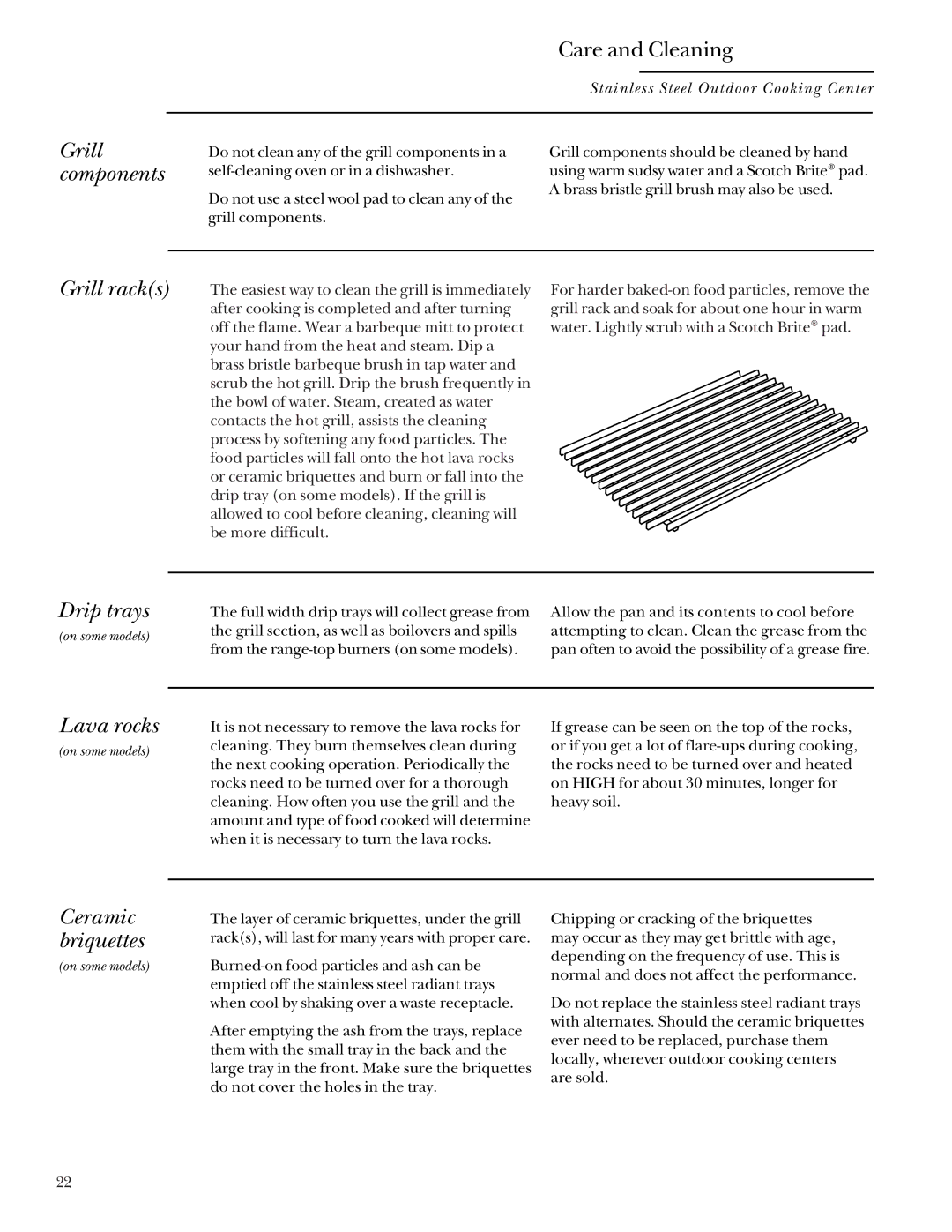
Grill components
|
| Care and Cleaning | ||
|
|
|
|
|
|
| Stainless Steel Outdoor Cooking Center | ||
|
|
|
| |
| Do not clean any of the grill components in a | Grill components should be cleaned by hand | ||
| using warm sudsy water and a Scotch Brite® pad. | |||
| Do not use a steel wool pad to clean any of the | A brass bristle grill brush may also be used. | ||
|
|
|
| |
| grill components. |
|
|
|
|
|
|
|
|
Grill rack(s) The easiest way to clean the grill is immediately after cooking is completed and after turning off the flame. Wear a barbeque mitt to protect your hand from the heat and steam. Dip a brass bristle barbeque brush in tap water and scrub the hot grill. Drip the brush frequently in the bowl of water. Steam, created as water contacts the hot grill, assists the cleaning process by softening any food particles. The food particles will fall onto the hot lava rocks or ceramic briquettes and burn or fall into the drip tray (on some models). If the grill is allowed to cool before cleaning, cleaning will be more difficult.
For harder
Drip trays
(on some models)
The full width drip trays will collect grease from | Allow the pan and its contents to cool before |
the grill section, as well as boilovers and spills | attempting to clean. Clean the grease from the |
from the | pan often to avoid the possibility of a grease fire. |
Lava rocks
(on some models)
It is not necessary to remove the lava rocks for cleaning. They burn themselves clean during the next cooking operation. Periodically the rocks need to be turned over for a thorough cleaning. How often you use the grill and the amount and type of food cooked will determine when it is necessary to turn the lava rocks.
If grease can be seen on the top of the rocks, or if you get a lot of
Ceramic briquettes
(on some models)
The layer of ceramic briquettes, under the grill rack(s), will last for many years with proper care.
After emptying the ash from the trays, replace them with the small tray in the back and the large tray in the front. Make sure the briquettes do not cover the holes in the tray.
Chipping or cracking of the briquettes may occur as they may get brittle with age, depending on the frequency of use. This is normal and does not affect the performance.
Do not replace the stainless steel radiant trays with alternates. Should the ceramic briquettes ever need to be replaced, purchase them locally, wherever outdoor cooking centers are sold.
22
